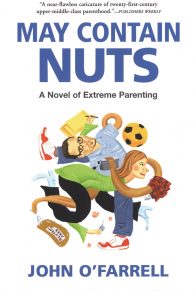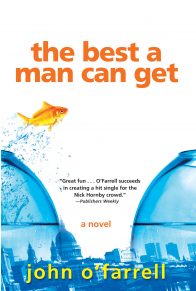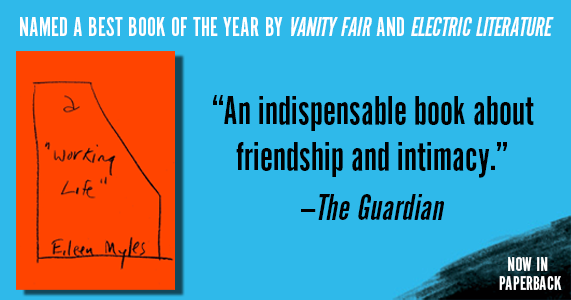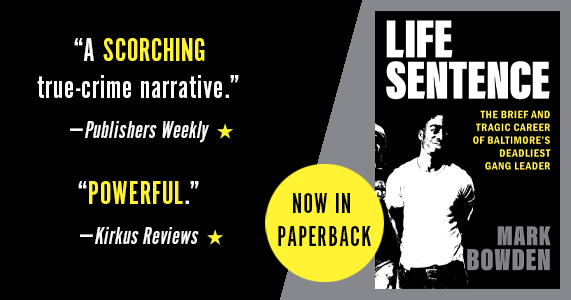UNAWARE OF THE SURPRISE AWAITING HIM, JIMMY APPROACHES THE ENTRANCE TO THE RESCUED OTTER SANCTUARY. ONLOOKERS APPLAUD. BUT THEN A FAMOUS TELEVISION PRESENTER (STILL EAMONN ANDREWS??) APPROACHES CLUTCHING A BIG RED BOOK.
JIMMY CONWAY: Yes? (JIMMY SEES TV CAMERAS AND PRESENTER’s FAMOUS RED BOOK) Oh I don’t believe it!
FAMOUS PRESENTER: Yes, you thought you were here to open another otter sanctuary as part of your tireless work for various animal charities, but you’re not because, Jimmy Conway, THIS IS YOUR LIFE!
JIMMY LOOKS STUNNED, THEN LAUGHS AND LOOKS SKYWARDS IN DISBELIEF.
WE “CUT” TO THE FAMOUS STUDIO WHICH IS IN LONDON AND IS VERY BIG.
FAMOUS PRESENTER: You were born “James Elliot Conway”, second child of John and Valerie Conway of 27 Elms Crescent, East Grinstead, Sussex, England, Great Britain, Europe.
Your family didn’t realize that you were destined for great things as your big brother Nicholas is now forced to admit . . .
VOICEOVER FROM NICHOLAS (NOW GROWN UP, FAT AND BALD):
Oh, our little Jimmy was always joking and laughing. I used to tease and bully him and say he’d never achieve anything, but he’s proved us all wrong. We’re all very proud of him. He’s certainly turned out much better than me if the truth be known.
FAMOUS PRESENTER: After leaving a very respected university with a good degree in an intellectual yet commercially useful subject that you could always fall back on if needs be, you began a glittering career in show business. You started out as a humble stagehand which was very sensible because it’s a good idea to get to know the ropes first rather than diving straight in at the deep end.
Anyway, a week later the star and his understudy were travelling in a car together when they were involved in a tragic collision with a lorry load of animals destined for laboratory experiments. Fortunately the actors were not seriously injured, and none of the animals were badly hurt either, but it took firemen twelve hours to cut the two actors out from all the mangled cages while all the animals, like rabbits and things, escaped to a nearby forest, which luckily didn’t have any foxes. With no one to play the biggest part in that night’s performance, the director got the cast together to tell them he was forced to cancel the show, which would also by the way bankrupt the whole theatre and put everyone on the dole including poor people like cleaners etc., etc. At this point a young unknown stagehand called Jimmy Conway (you) stepped forward and bravely announced that he knew the lead part off by heart. The director takes up the story . . .
FAMOUS DIRECTOR: Jimmy was really brilliant. He was a real revolution to us all, he was far better than the famous comic actor that we’d got but no one liked anyway. Soon afterwards, Jimmy got the star part for good, we moved to the West End theatre, he became a famous comedian and, as they say, “the rest is in history”.
I folded the well-worn script and placed it carefully back in my breast pocket. It was over twenty years since I had painstakingly typed it out on the Silver Reed typewriter I had received for my thirteenth birthday.
I lay back on the tatty sofa and closed my eyes. I wanted to empty my head of all thoughts but somewhere an insect was buzzing loudly. At the window a wasp seemed to be struggling with the insect equivalent of Fermat’s last theorem. Problem: you are confronted with a half-opened window. How do you get to the other side? Wasp answer: keep headbutting the glass over and over again. “Aah,” says the wasp professor, “you would think so, wouldn’t you? But if you repeatedly fly into the glass of the half-opened window and you find for some reason that you cannot seem to go straight through the glass, then what do you do?” Hush falls over the wasp tutorial as their eager brains are taxed to the limit of wasp logic. Until one brilliant young wasp, the intellectual superstar of Wasp College, Cambridge, tentatively puts up his front leg, the answer slowly coming together in his insect head.
“If . . . one . . . cannot fly straight through the glass’ – he cogitates as the lecture room falls silent, the other wasps sensing that they are in the presence of wasp genius – “and we have established that the window is half open . . .” he continues, his brow furrowed in total concentration, “then surely the logical thing to do . . . would be . . . to fly repeatedly at the glass, buzzing a lot?”
The other pupils glance eagerly across at the professor to see if this pupil has hit upon the solution, but their tutor smiles knowingly and shakes his head. “No,” he says. “The answer is that there is no solution to this conundrum. It is an impossible problem, like predicting prime numbers or putting a definitive value on pi. It is a philosophical trick question that cannot be answered.”
I stood up and rolled up a newspaper to strike the stupid wasp dead, but then thought better of it and used my improvised swatter to guide him gently over the top of the window and away into the outside world. A year earlier I don’t think I would have spared him but now I felt in a position to act with generosity and benevolence.
I lay back on the sofa once more and closed my eyes. How nice it would be if I could just go to sleep now, if I could forget where I was and what I had to go and do. Then, as if somebody was aware of my escapist fantasy, there was a loud distorted crackle, and from the old speaker hanging off the wall came the startling message: “Jimmy Conway, this is your five-minute call! Jimmy Conway to the stage please.”
In 300 seconds’ time I was supposed to be walking out onto the stage of one of London’s most famous theatres in front of two thousand specially invited guests. Here, I was to stand on my own under the glare of the lights and perform a brand new stand-up comedy routine, a performance which was, incidentally, being transmitted live on BBC1 to millions of homes across the country, who even now were glued to the spectacle of an all-night charity gala featuring dozens of their favourite stars.
The prospect made me wonder what it would be like to be a librarian. That must be a nice job, I thought. Surrounded by books all day; warm and quiet, occasionally stamping the return date on a Catherine Cookson novel, smiling at the old lady and handing the book back to her. ‘due back on the twenty-fourth, Edna.” Yes, I could live with that. There must be some stresses and personal pressures I suppose, having to stay late when there was 5 pence missing from the fines box or whatever, but I bet you don’t often have to go out and perform a stand-up comedy routine live in front of millions of people.
I pulled myself upright and looked in the long mirror. I was wearing an immaculate light grey suit, my shoes were polished, my face was clean-shaven and I’d now removed the tiny bits of torn-off toilet paper that had been placed on all the cuts. There was a small speck of fluff on my jacket and I carefully picked it off. “Time to go and knock “em dead, Jimmy,” I said to myself, slightly unconvincingly. “Jimmy Conway to the stage please!” replied the tannoy, slightly more insistently. There must be some other preparation required, I thought; some other avoidance task I could invent just to keep me in this private cocoon for another few seconds. I know, I should gargle. It’s very good for your voice, gargling; everyone knows that actors gargle before they go on stage. I picked up a plastic cup on the side of the washbasin and turned on the tap. At which point a high-pressure jet of cold water shot out of the tap with such powerful fire-hose force that it ricocheted off the bottom of the sink and out all over me.
‘shit!” I said. I looked down to see that my groin was completely soaked: a large soggy dark grey patch spread outwards and downwards from the epicentre of my flies. ‘shit! Shit! Shit!” I repeated. I grabbed a towel and tried to dab my trousers dry.
Comedy is all about making your audience feel comfortable, about reassuring them that they are in safe hands; they need to believe that you are relaxed, not the slightest bit nervous or on edge. I knew my routine off by heart, I had a flashy suit; the only slight imperfection that might make an audience feel I was not completely comfortable about being up on stage was the fact that I’d obviously wet my pants. When you’re looking for signs of nervousness in a comic, I’d say that a big damp patch around his groin was probably a bit of a giveaway.
I threw the towel to one side and ran out of my dressing room. Maybe there was an electric hand-dryer I could use in the gents’ toilets. The stairs down from the dressing room were austere uncarpeted concrete and the bricks on the walls had long ago been painted with nicotine-yellow gloss paint. In theatreland every effort is made to present a glittering spectacle before the paying audience, while the parts of the building they don’t see are inversely utilitarian and tatty. When I reached the floor below, I burst into the gents’ to see a large electric hand-blower on the wall in front of me.
“Thank you, God!” I said to the ceiling and I pressed the big metal button. Nothing happened. I stabbed at it again several times but it was completely dead. There was a switch on the wall that I flicked on and off but it made no difference. I heard an electrical crackle which for a split second I hoped was some sign of life but then a voice bellowed through the speaker. “Jimmy Conway to the stage now PLEASE. You are on in two minutes. Jimmy Conway to the stage immediately!”
There was no escape. I ran out into the corridor, now in a state of uncontrolled panic. Maybe they had hand-dryers in the big star dressing rooms down here on the first floor. I hammered on the door of Dressing Room One but there was no reply so I pushed open the door and there lying on the table before me I spotted the Holy Grail – an electric hairdryer. Salvation was at hand. It was already plugged in so I switched it to the maximum setting and directed it at the big wet patch between my legs. The dark grey of wet cloth quickly dried to light grey, but I could still feel the dampness in the lining of my pockets underneath, and since there was not a second to spare, I undid the buttons of the trousers and attempted to dry my crotch from the inside, wiggling the hair dryer, jumping slightly as the hot air scalded my skin. It was at this moment that the door to Dressing Room One opened.
I’d always wanted to meet Dame Judi Dench. I’d say she was one of my all-time favourite actors and I’d always hoped that one day our paths might cross.
“Hello,” said Judi Dench looking at me, apparently only
slightly surprised to see a man in her dressing room with her
hairdryer on full blast down inside his trousers.
“Um, hello,” I replied. ‘sorry, is this your dressing room?” “Yes.”
“Look, I’m really sorry, but I splashed water all over myself and I’m on stage in two minutes and I was desperate.”
“Two minutes? Was that you the SM was just calling on the tannoy?”
“That’s me, yes, Jimmy Conway,” I said, offering the wrong hand to shake because the other one was still fiddling around in front of my pants.
“Judi Dench.”
“Yes, I know. I thought you were brilliant in Iris by the way. And Mrs Brown for that matter.”
“Thank you.”
“What’s Billy Connolly like?” I said, hoping that casual theatrical chit-chat might distract slightly from what I was doing with Dame Judi’s personal hairdryer.
“Billy’s lovely. Hadn’t you better get a move on?”
“Well, yes, it’s just I didn’t want to go on stage with a big damp patch on my trousers . . .”
She laughed. I made Judi Dench laugh.
“Jimmy Conway? You’re the comic that everyone is talking about, aren’t you?”
“Oh. Well, not everyone – um – just some people,” I
stuttered, trying to sound modest but secretly delighted that
the reigning queen of British theatre had heard of me.
“I’ve not seen your act, I’m afraid, but I’ve heard you’re very good.”
“Well, fewer people have seen me than you’d think . . .” I said.
“Until tonight, that is.”
“Oh my God, they said two minutes about two minutes ago, didn’t they?”
‘don’t worry. I’m sure the stage manager’s allowing a few minutes spare, especially with this going out on the telly as well.”
‘do you think so?” I said.
“Look, why don’t I go and tell him you’re just coming while you sort yourself out in here?”
“Oh, thank you so much, I really can’t thank you enough. Tell him I’m in your dressing room, and I’ll be there as soon as I’ve done my trousers up.”
“Well, I might not put it quite like that,” said Judi Dench with a smile, and then she was gone.
What a nice lady, I thought. She really was very nice indeed.
Judi (as I felt I could now rightfully call her) had been quite right, of course. The panicky cry of “Jimmy Conway, you are on stage in two minutes!” had meant more like ten minutes, although the stage manager still mimed a mock heart attack when he saw me and called back the runner he had sent out to search the local pubs.
The trouser crisis had at least allowed me briefly to forget the next stage of the evening, but having got myself into a state of extreme anxiety about one problem, I was denied the opportunity to use that wave of adrenalin to surf right out onto the stage. I had to build myself up all over again.
Through a crack in the curtain at the side of the stage I could see the audience staring as one straight ahead of them. In a few minutes all those telescopic sights would be aimed at me. They seemed in quite a jolly mood until the dear comp’re started talking about the dreadful suffering their ticket money would go a tiny way towards alleviating. Did he not realize that a comedian was about to take the stage? What better way to warm up an audience than to talk about disabled children living in poverty in Britain’s inner-cities? “Honestly!” I said to the stage manager. “Why doesn’t he flash up some pictures of neglected kids to make them feel really miserable and guilty?”
“They are flashing up pictures of neglected kids,” he replied. “You just can’t see the monitors from back here.” “Oh. Spiffing.”
I watched from the sides for a few more minutes, feeling numb and totally alone. At one point I got out my script and glanced over the opening paragraphs, but it was ridiculous; I knew it so well I was in danger of forgetting the meaning of the words.
“Haven’t you learnt it yet?” teased the stage manager in a whisper loud enough to be pointless.
“Of course I have,” I said, a little too defensively. “I couldn’t be better prepared.” A boast that was rather undermined by my mobile phone suddenly ringing loudly in my breast pocket. I decided on balance not to take the call. I always think it’s a bit rude to talk into mobiles when other people can overhear you, like when you’re on a train, in a caf” or walking out to perform in front of two thousand people at the London Palladium. “Hiya, I’m on a stage!” It would be hard for the audience to pretend not to be listening.
‘sorry!” I whispered as I turned the phone off. The comp’re was introducing me and I tightened my tie and checked that my hair wasn’t all sticking up.
“Ladies and gentlemen, it’s the moment you have all been waiting for . . .” roared the comp’re. “You’ve heard so much about him, but now, making his BBC debut, put your hands together for a very, very funny man, the one and only . . . JIMMY CONWAY!”
The applause was louder than I had expected, and there was some whistling and a lone cheer. My senses were highly tuned, seeing, hearing, smelling everything; absorbing it all at once. The comp’re gave an exaggerated gesture to welcome me on stage and I stepped out from that shady sanctuary into the exposed bright open space of the vast arena, like a nervous rabbit thinking about crossing the motorway. The comp’re skipped offstage patting me matily on the back as if we knew each other well. For a moment I thought I must seem rude for not remembering ever having met him before.
The microphone stand lay ahead like a solitary blade of grass on a World War One battlefield. I walked towards it. What the fuck am I doing here? I thought to myself. The applause of two thousand people was dying down as they waited for my first words. I thought about all those millions of people watching me on their televisions at home, including just about everybody I knew. And as the applause finally gave way to an electrified tightrope of silence, I wondered if I should perhaps have shared my little secret with someone else by now.
That I’d never performed any stand-up comedy ever before.
Copyright ” 2002 by John O’Farrell. Reprinted with permission from Grove Atlantic, Inc. All rights reserved.















